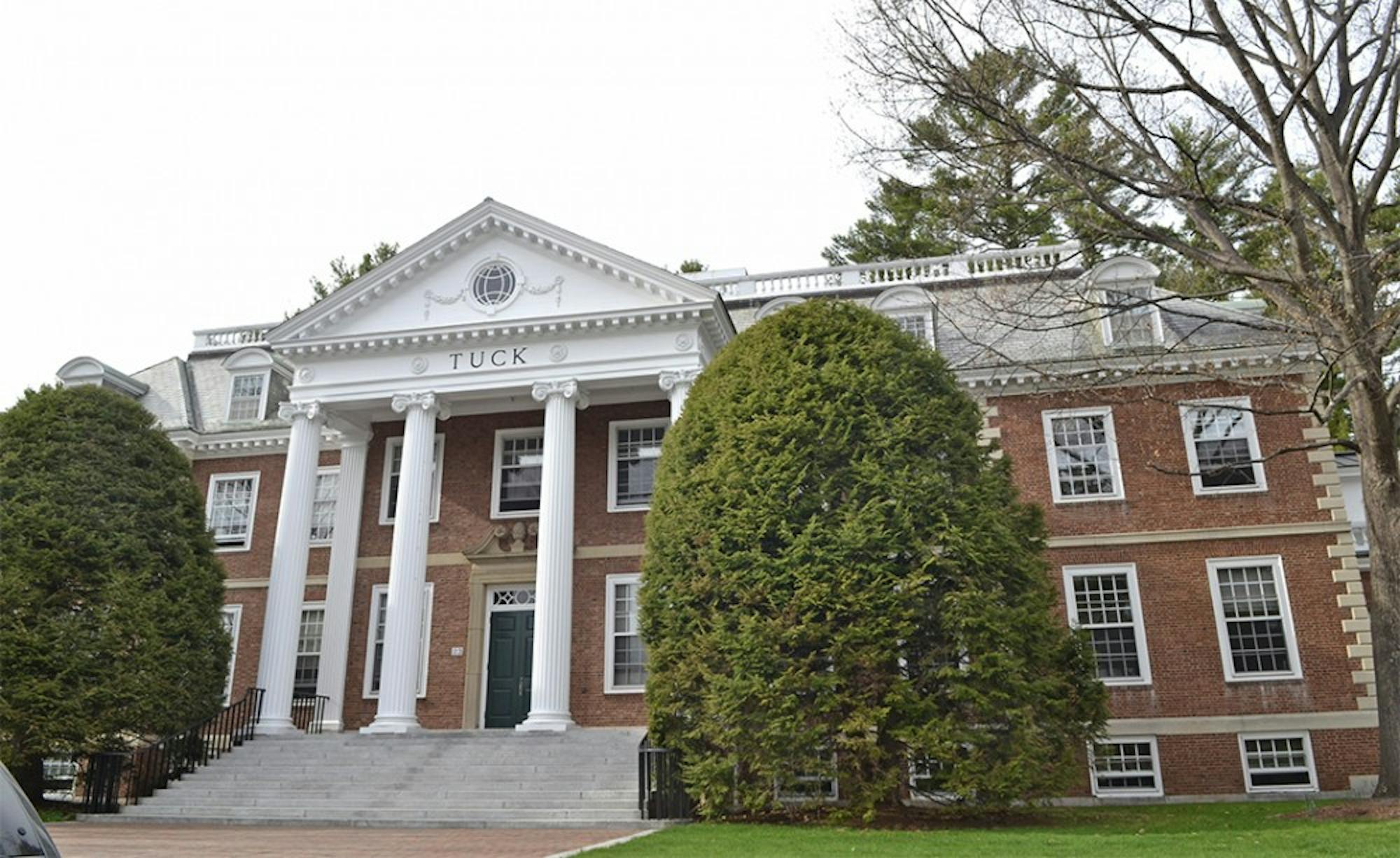Last month, the Tuck School of Business placed fifth in Forbes’ biennial ranking of U.S. business schools, consistent with its 2015 ranking and an improvement from its 2013 ranking of sixth.
Forbes ranked the Wharton School at the University of Pennsylvania as the best business school in the country, followed by the Stanford Graduate School of Business, Harvard Business School and Northwestern University’s Kellogg School of Management.
Forbes surveyed members of the Class of 2012 from business schools throughout the U.S. The schools were ranked based on the median return on investment of graduates.
To determine graduates’ return on investment, Forbes accounted for their pre- and post-MBA compensation, which includes salary, bonuses, exercised stock options as well as their “opportunity cost,” including tuition and two years of foregone income.
Gina Clark des Cognets Tu’01, chief of staff and executive director in the office of the dean at Tuck, noted that while potential students consider many factors when applying to business school, a school’s ranking is one of the most important considerations in the application process.
“When I think about students who are considering MBAs, I think the impact and the value of the degree is a really important piece of their decision making,” des Cognets said. “I think the Forbes ranking is pretty helpful in offering that distinct view on [Tuck’s] return on investment.”
Charlie Ary Tu’18 said that while rankings do hold some importance for students applying to business school, they are not the sole factor applicants use to ultimately choose a school.
“People look at [rankings] as one of the many data points they might consider,” he explained. “For me, it was a small piece of the whole,” he explained.
Before Ary committed to enrolling in the MBA program at Tuck, he spent time visiting the campus, connecting with current students and alumni.
Praveen Kopalle, associate dean for Tuck’s MBA program, said he was not surprised by the recent Forbes ranking. He largely credited Tuck’s ranking on the school’s curriculum, one that focuses on global experiences and experiential learning, he said.
“Learning the conceptual underpinnings of a business and applying them to the practice is what companies really value, so it’s no wonder that [Tuck graduates’] payback is very good,” Kopalle said. “If you look at their salaries, they’re all really high.”
Likewise, Ary praised Tuck’s curricular emphasis on hands-on education, specifically through courses like First-Year Projects and the OnSite Global Consulting program. He said he thinks that these factors help in “transitioning [students] from the classroom into the professional world.”
Additionally, Kopalle noted that Tuck also neared fifth or sixth in other national rankings done by organizations like Businessweek that use different metrics to consider the success of schools.
“If we do something right in our program, it will reflect well in the rankings,” he said.
Kopalle cited three chief criteria as factors that he believed differentiate Tuck from similarly ranked institutions: its small size, its singular focus on its MBA program and the community within the school.
As the smallest institution in Forbes’ top five business schools, Kopalle noted the high amount of “per capita resources” at Tuck. Additionally, unlike many other top business schools, including Columbia Business School and New York University Stern School of Business, Tuck offers only one degree, an MBA. This characteristic of Tuck allows the whole institution to be centered around one program, rather than having to juggle many, Kopalle said.
Kopalle cited the “fabric of Tuck,” or the tight-knit community within the institution among students, faculty and staff alike, as a unique aspect of the business school.
Similarly, des Cognets noted Tuck’s community as one of its most unique characteristics.
“Tuck has a very distinctive community here,” des Cognets said. “Our students, staff and faculty come together in a way that creates a really trust-based environment. It allows you to push yourself to learn, grow and develop in a way that I think is unlike anywhere else.”
Ary reflected that the community at Tuck allowed for strong relationships outside of its campus.
“[The] very high caliber of education in the classroom, really good relationships with professional institutions and [Tuck students] who are out in the professional world provide our students opportunities as they finish their education,” Ary said.




